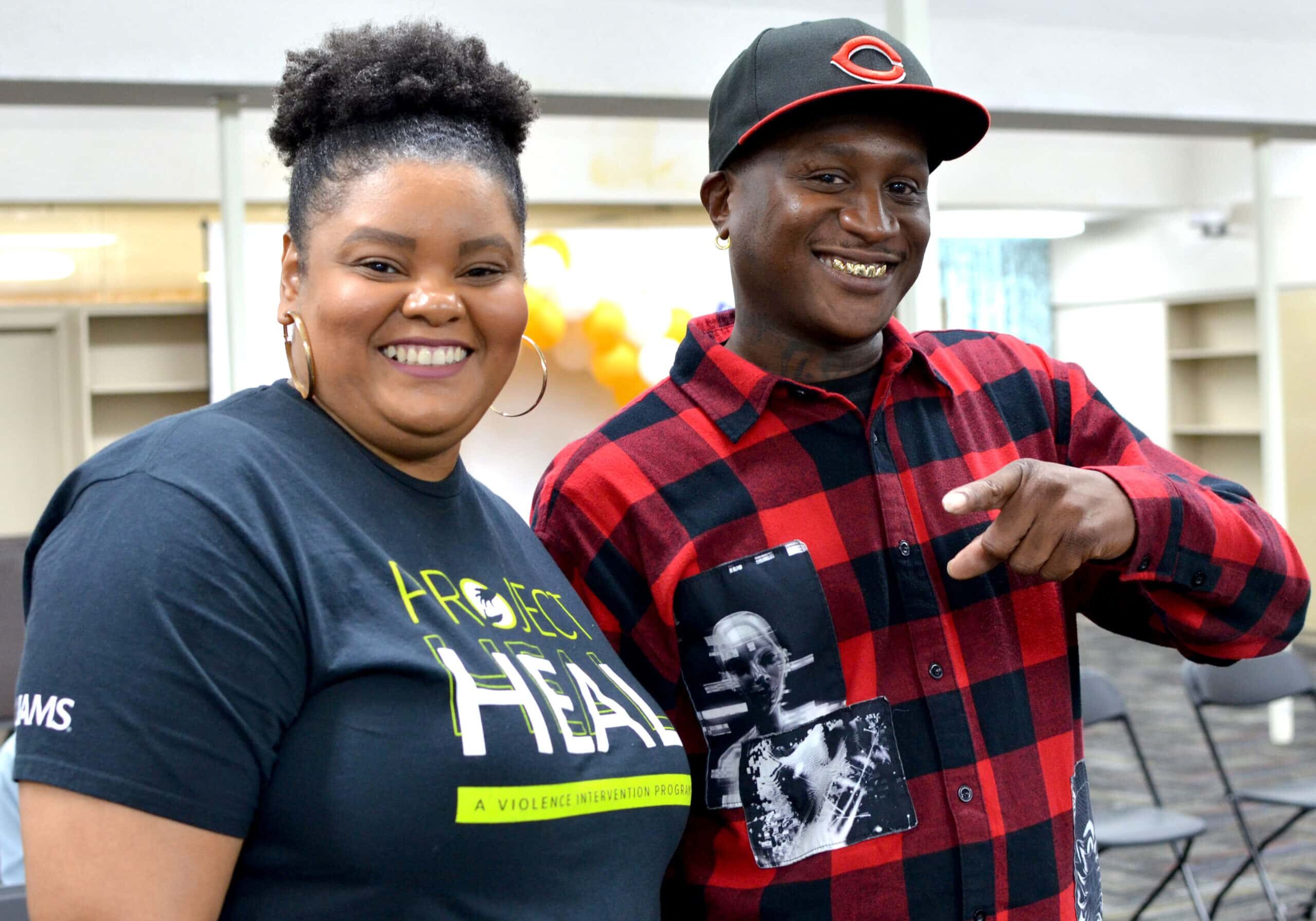Researchers Recruiting Rural Arkansans for Project Heal Research
| The Project Heal Rural Arkansas team is recruiting qualified individuals to participate in their violence intervention research.
A research study supported by the University of Arkansas for Medical Sciences (UAMS) Translational Research Institute KL2 Scholars Program and housed in the Fay W. Boozman College of Public Health’s Department of Health Behavior and Health Education, Project Heal Rural Arkansas is especially in need of violent assault injury patients and medical providers from rural communities such as Crittenden, Mississippi, Phillips and Jefferson counties.
Led by Nakita Lovelady, Ph.D., MPH, an assistant professor in the department, Project Heal Rural Arkansas explores the feasibility of implementing a hospital-based violence intervention program (HVIP) to address violent assault injuries, in particular gun assaults, among high-risk populations outside of the Little Rock area.
HVIPs give promise for addressing violence as they provide an immediate needs assessment, peer support and connection to follow-up care and social services to address the psychological harm from assault and risk for re-injury among patients. The project aims to identify the barriers and facilitators for implementing a HVIP for rural participants in Arkansas. From the findings, the goal is to adapt the HVIP model for rural settings to help break the cycle of violence and facilitate healing for individuals disproportionately impacted.
In 2020, Lovelady led a similar ARCHD pilot study to explore the feasibility of implementing a HVIP in Little Rock. Those findings are what led to the launch of Arkansas’ first HVIP called Project Heal City of Little Rock in January 2023. The program collaborates with UAMS Medical Center’s Trauma Center, the state’s only adult Level 1 trauma center, and the City of Little Rock. Based on statistical evidence from both the project and the trauma center, Lovelady recognized the need to expand the program for the state’s rural areas.
“We’re recruiting qualified people to help us with our goal to attain a better understanding of the violent assault factors, associated barriers and the facilitators in communities outside of Little Rock,” Lovelady said.
Patients who participate in Project Heal Rural Arkansas must be:
- Black or African American
- Male
- 18 to 44 years of age
- Resident of a community at least 35 miles outside of Little Rock
- A recent patient at the UAMS Emergency Department for a penetrating violent assault injury, such as a gunshot, stabbing, etc.
- Able to interact with the team either by phone or Zoom. Interviews are 45 minutes to an hour long, and participants receive compensation.
“Interviews will help us understand what services assaulted individuals need,” Lovelady said. “With our patients, their needs vary. We must tailor the program to each individual and what they have going on. We must make sure we’re designing a program that they can use, that they need and that they can make the most of to improve their recovery.”
The team is also recruiting health care professionals based in rural Arkansas.
“Medical providers, or anyone who practices or provides health care services in our targeted rural areas, are eligible to participate in this program,” Lovelady said. “We’re recruiting medical providers who work in direct patient care or the planning of follow-up care for patients.”
Increasing the number of program participants from the community and medical field is key to creating well-rounded recovery options for individuals overcoming violent assault. Working with the community to learn how people deal with the trauma helps the team understand what’s needed, said Taylor Washington, the department’s clinical and research program manager.
“This program benefits the greater Arkansas community,” she said. “Trauma survivors go through a lot. We’re trying something innovative to learn what survivors need.”
Meanwhile, research suggests that rural communities have a different context than urban areas regarding health care and social services, especially for people who have experienced violent assault. Among the starkest differences is access to care. That’s a major issue in most of Arkansas’ rural communities.
“Often, there are fewer resources and availability of health care and services in rural areas,” Lovelady said. “So providing violence prevention services will look different, and we want be sure we have the proper understanding of how to best implement our program in rural Arkansas. This is the purpose of our study, and why we are talking to patients and key implementers in those areas.”
Lovelady is confident the project will attract lots of community interest, due primarily to its potential to help violent assault patients.
“We’re interviewing patients who don’t have a program like Project Heal to help them during their recovery,” she said. “However, if those individuals know they can help create a platform for other assault survivors, so that their recovery process is easier to handle, that can be something which appeals to a potential participant.”
To participate in Project Heal Rural Arkansas, please email ProjectHeal@uams.edu or call (501) 526-1865.
